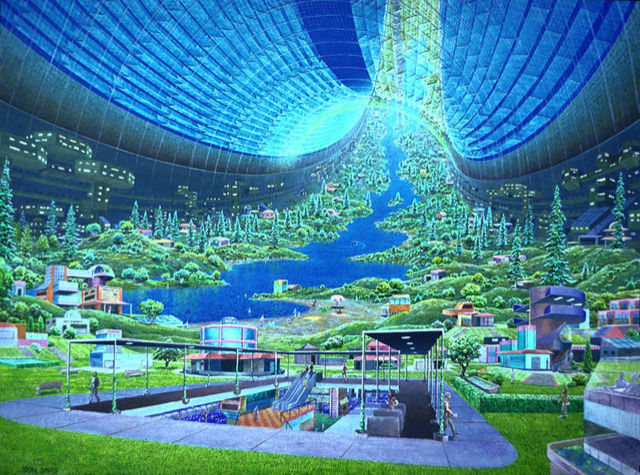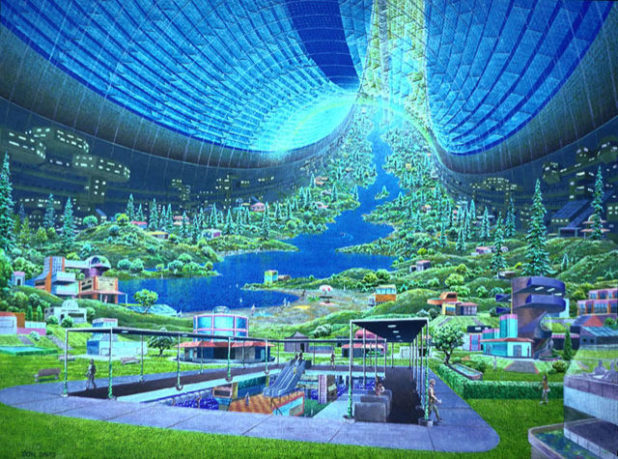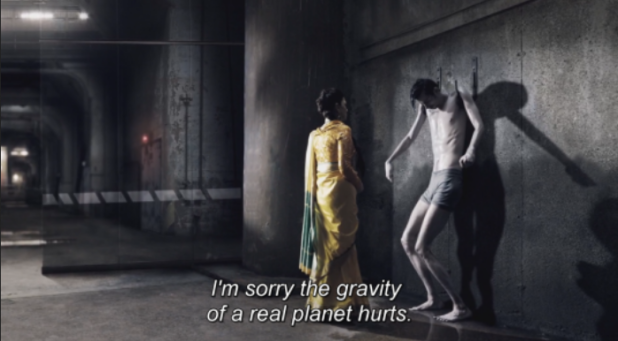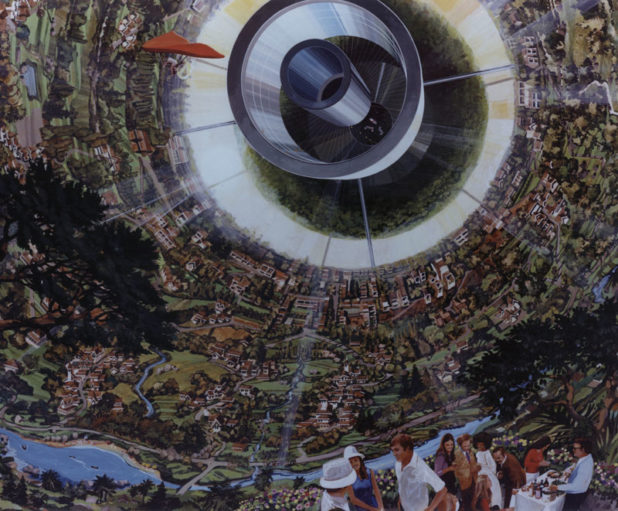Andrew Anglin
Daily Stormer
March 12, 2017
This is real.
We need to get all of the tech people behind Donald Trump.
He is the only person who can make any of this space invasion stuff happen in real life.
He needs to make it a focus.
This is important.
Thousands of people could be living in floating space colonies orbiting the Earth in 20 years’ time, according to the head of a project by the British Interplanetary Society (BIS).
And, while life in space might sound unappealing to some, Jerry Stone believe it could actually be healthier than planet Earth, enabling people to live longer and, eventually, grow taller.
Mr Stone, author of the book One Small Step about the moon landings, and other members of the BIS have been updating research carried out in the US in the 1970s into how humans could start living in space in large numbers.
In a speech in Aberdeen as part of British Science Week, Mr Stone will claim humanity is now close to the point where such colonies could be built using material taken from the Moon and asteroids.
Speaking to The Independent, he said the space colonists would initially build and maintain solar panels that would be used to provide power on Earth.
This, he said, was much more efficient than collecting the sun’s energy on the Earth’s surface after it has passed through the atmosphere.
But other industries might later move into space to take advantage of the weightlessness and huge supply of energy from the sun.
The colonies would consist of a vast hollow cylinder, which would rotate to provide gravity for the people who would live on the inside.
Mr Stone said much would depend on private companies developing spacecraft that provided cheap and reliable access to space.
And we can only do that in America.
Only in America.
That is just a fact of life, kids.
But asked when he thought the first major colony might be created, he said: “If we were to say start in 10 years’ time, we could potentially have this up and finished in 20 years from now, which is pretty amazing, isn’t it?”
The research in the 1970s was led by Princeton University physicist Professor Gerard O’Neill, who asked his students to come up with designs for space colonies.
They decided it would be better for them to float in space, rather than be attached to the Moon, for example.
They came up with a number of designed, calling them Island One, Two and Three.
While the project might sound far-fetched, Mr Stone said it could actually have been done 40 years ago.
Of course it could have been done 40 years ago.
Hitler would have had it done by 1960.
Fact of life.
But we in the West – the baby boomers, to be specific – decided they would rather have a lot of sex, liberate women, promote anal sex with men and then flood the entire country with utterly useless nonwhites.
In short, we’ve been living in a Jewish century. And Jews do not create – they destroy.
“They [the Princeton team] deliberately restricted the design to the technology of the period, so nobody could say ‘this is very nice, but it depends on this, this and this that hasn’t been invented yet,’” he said.
“They could have done all this with 1970s technology. If we were to do this now we could probably to it far more efficiently than back in the 1970s – that’s why I started this project at the British Interplanetary Society.
“We’re not just playing around with it. Some of our group have been working specifically on the Island One design. They have decided that a short cylinder would be better than a sphere.”
The BIS team’s adapted design has been dubbed Island Zero.
As the gravity is created artificially, this led them to question whether the colonies should have the same level as found at sea level on Earth, 1G.
“Do they need to rotate to give 1G? How about 0.9G or 0.8G? That would mean less stress on the structure and less stress on the inhabitants,” Mr Stone said.
“They would probably live longer. And over longer periods of time, the inhabitants would be taller than those on Earth.
“We would need to take that into consideration – you’d need taller ceilings.
“But also at what point does lower gravity become a problem? The answer to that is nobody knows.
“On the International Space Station, people are completely weightless and that’s not what we want.
“For most of the time, [the colonists] will be working and living under simulated gravity, which will be much better for them health-wise.”
Well, science fiction has dealt with this a lot. If someone was raised in lower than earth gravity, they would need a wheelchair on earth. I mean, if it was significantly lower – not sure what level would make that happen.
This was most recently demonstrated – very coolishly – in the TV series “The Expanse.”
Earth officials use gravity to torture some guy from an asteroid colony.
As seen in that screenshot, the low gravity also causes muscles to develop less.
He said the BIS had looked at such plans before.
“What makes this different to all the other previous studies by the BIS is they have pretty much been focussed, 99 per cent, on the technology,” Mr Stone said.
“But when you are building a space settlement, you are also involved in a huge range of topics – such as town planning, housing, offices, administration, parkland and so forth, agriculture … ecology is a huge thing.
“Plus there’s the political and legal aspects of it. If a consortium is set up to manufacture this settlement, will they actually be allowed to take material from the moon?”
The BIS, which was founded in the 1930s, has also been in touch with the Rothamsted agricultural research centre to discuss the kinds of crops that could be grown in space to feed the people there.
This is brilliant.
We need to talk about this stuff, very seriously.
It matters.
This can change society. If we have a goal, something we are moving towards, then all of the policies we want can be easily justified.
Leftist policies are based entirely on the idea that human existence has no purpose.
Think about that for a second. It is totally obvious on its face, but it’s not said very often.
We need purpose.
We need space colonies.
You could live here, guys:
Think about that.



